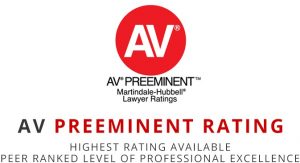
Are you being harassed by debt collectors?
Whether you have fallen into debt from mortgage, credit card, student loan or car loan, you are likely feeling overwhelmed. And you know what doesn’t help? Those annoying calls from debt collectors. If you weren’t already stressed enough thinking about how you will cover your bills, the constant reminders and sometimes harassment of debt collectors does not help.
However, if you are being harassed by debt collectors, you may be able to do something about it and possibly benefit financially.
What is considered debt collector harassment?
Fortunately, state and federal law protects borrowers from harassing, abusive, or deceptive tactics from debt collectors. On the federal level there is the Fair Debt Collection Practice Act (FDCPA), and for the state of Florida (Florida residents) there is the Florida Consumer Collection Practices Act (FCCPA). These laws protect debtors and ensure they are treated fairly.
Some debt collectors may use different tactics, some may be illegal. Some of these illegal strategies include:
- Threatening a wage garnishment, without the intention of following through
- Threatening you with property liens, or to impound a vehicle, without the intention of following through ● Threatening an arrest
- Threatening to take any legal action without the intention of following through
- Contacting neighbors, friends, or relatives about your debt
- Calling more than one time a day
- Contacting you at your job
- Trying to collect a debt you do not owe
- Trying to collect on a debt that has gone beyond the statute of limitations
- Calling before 8 am or after 9:00 pm
- Trying to collect on a debt that was discharged in a bankruptcy case
- Contacting you after you ask them to stop
- Being dishonest about the amount of the debt
- Contacting you directly when you have legal representation
- Using deception to try and recover debt
- Using abusive or improper language
If a debt collector has engaged in the above tactics with you, they have violated your rights. It is crucial to speak to a debt defense attorney as soon as possible after the violation has happened. They can help you to file a claim with the proper government agency, or even possibly a lawsuit under the right circumstances.
How to document debt collection harassment
If you send any documents to a debt collector, always keep a copy of these, so you have these documents for your own reference. You cannot legally record someone without their permission, so take notes about any
contact you have with the debt collection agency. Note where you received the call, the date and time, and a summary of what was discussed. These notes can help to build your case.


